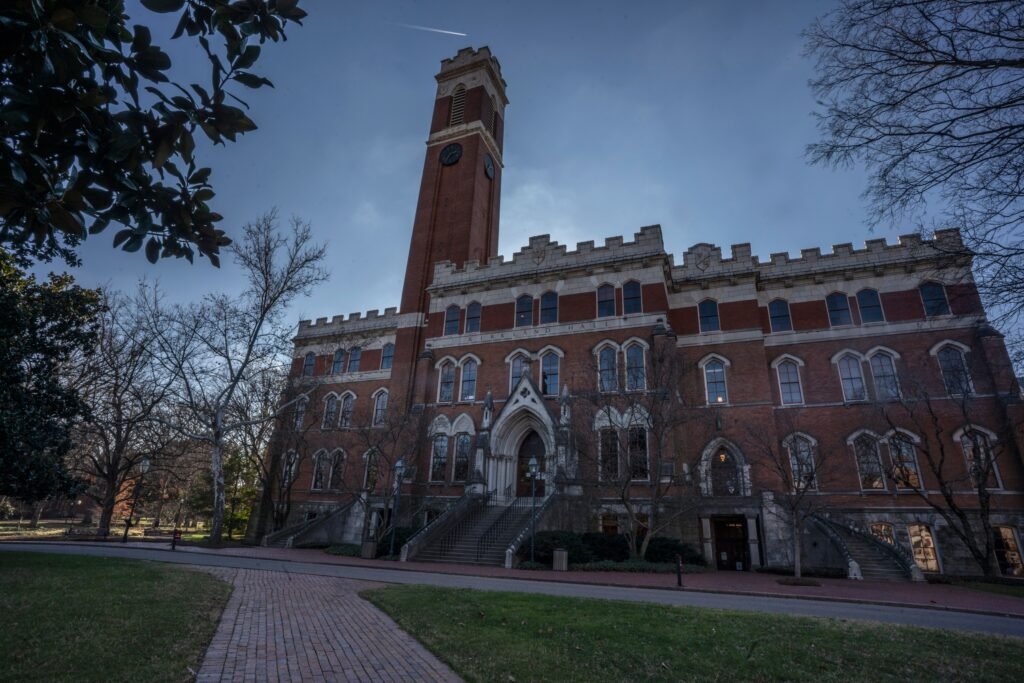Kirkland Hall at Vanderbilt University.
Vanderbilt University’s Senate, which includes deans and faculty representatives, has officially voiced its opposition to a potential agreement with the Trump administration. This agreement would entail adhering to new guidelines in return for prioritized funding.
In an emergency session on Wednesday, the Senate passed a resolution denouncing the proposed deal, arguing that it violates both state and federal laws and could infringe on the constitutional rights of those at the university.
The resolution asserts, “Vanderbilt University’s Faculty Senate strongly opposes this agreement as it stands and urges President (Daniel) Diermeier and the Board of Trustees to completely reject this proposal along with any similar ones that compromise the university’s mission, values, and independence.”
The vote was 30 in favor, 11 against, with one councilor choosing to abstain.
Concerns about the so-called “Agreement on Academic Excellence in Higher Education,” highlighted initially in the Wall Street Journal, have surfaced among various campus organizations and advocates for free speech. This agreement seeks to require Vanderbilt and nine other prestigious universities to adopt certain ideological objectives set by the Trump administration.
The ten-page draft contract includes provisions that would limit schools’ actions regarding faculty and political events off-campus, impose restrictions on international student admissions, and obligate institutions to use “legal force if necessary” to address protests that obstruct access to campus facilities.
The resolution points out that the directive “includes terms that contradict the university’s mission and traditions” and “threatens the university’s independence and integrity.”
A spokesperson for Vanderbilt remarked, “We have carefully reviewed the agreement and we are eager to provide constructive feedback to the administration,” referring to a statement shared on the university’s X account.
Along with Vanderbilt, the proposed agreement was also sent to several other institutions, including Brown University, Dartmouth College, the Massachusetts Institute of Technology, the University of Arizona, the University of Pennsylvania, the University of Southern California, the University of Texas at Austin, and the University of Virginia.






